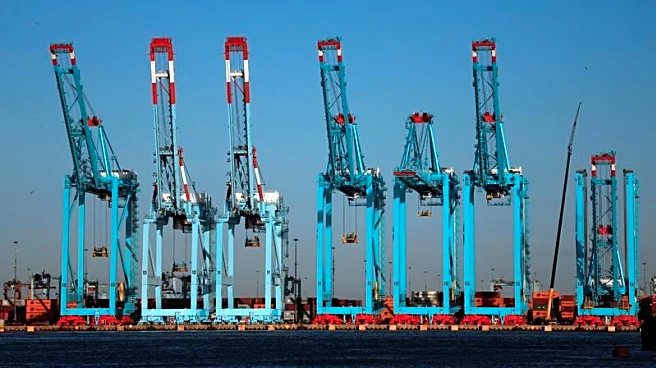What's Happening?
The rapid adoption of agentic AI in sectors such as finance, logistics, and operations is outpacing the maturity of existing governance, risk, and compliance (GRC) frameworks. Traditional GRC models, which rely on static policies and annual audits, are
proving inadequate in managing the complex and emergent risks introduced by autonomous AI systems. According to a recent Gartner report, titled 'Top 10 AI Risks for 2025,' there is an urgent need to develop dynamic and adaptive GRC frameworks that can keep pace with the evolving nature of AI technologies. These frameworks must be capable of addressing the millisecond-level changes and risks associated with self-optimizing AI agents.
Why It's Important?
The inadequacy of current GRC frameworks poses significant risks to businesses that are increasingly reliant on AI technologies. Without adaptive governance structures, companies may face unforeseen security vulnerabilities and compliance issues, potentially leading to financial losses and reputational damage. The shift towards dynamic GRC models is crucial for ensuring that AI systems are deployed safely and effectively, minimizing risks while maximizing operational efficiency. This transition is vital for maintaining trust in AI-driven processes and safeguarding stakeholder interests in a rapidly evolving technological landscape.
What's Next?
Organizations are expected to invest in developing and implementing adaptive GRC frameworks that align with the dynamic nature of AI technologies. This may involve revising existing policies, enhancing risk management strategies, and adopting real-time monitoring systems to address AI-related risks proactively. Stakeholders, including security and risk leaders, will likely play a pivotal role in driving these changes, ensuring that governance structures evolve in tandem with technological advancements. The focus will be on creating resilient frameworks that can adapt to the continuous evolution of AI systems.
Beyond the Headlines
The shift towards adaptive GRC frameworks may also influence broader industry standards and regulatory policies, prompting discussions on ethical AI deployment and the need for international cooperation in managing AI risks. As businesses navigate these changes, there may be increased emphasis on transparency and accountability in AI governance, fostering a culture of responsible innovation.

















